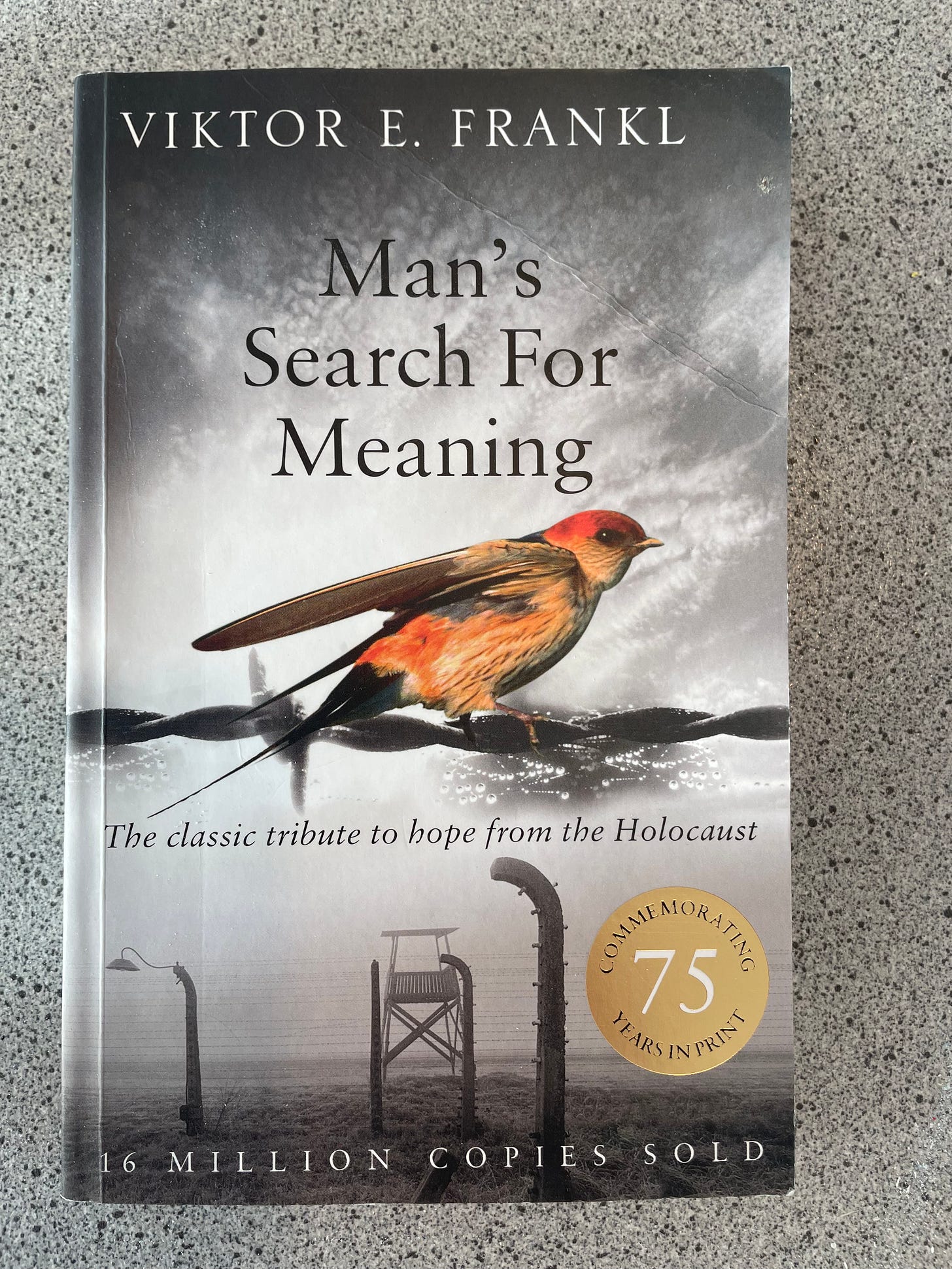Don’t Judge a Book by its Thickness
a slim volume .. but a heavy tome
I don’t often do book recommendations … but I found this so moving, so important and so practically useful, I feel it is a “must read” (and that’s the last cliche I plan to subject you to).
Viktor E. Frankl’s book "Man's Search for Meaning” covers his experience in WW2 concentration camps and his observations around survival and suffering.
Some prisoners were able to endure the horrors of the camps because they could find meaning in their suffering. Those with a reason to live (perhaps hoping to reunite with loved ones) were more likely to survive the ordeal.
Frankl noted psychological phases prisoners went through: shock on arrival; apathy and emotional death as camp life progressed; and finally, reorientation and adjustment after liberation. The reaction to freedom he details gives, perhaps, the most surprising insight: Not the instant joy one might expect - more a process of disbelief gradually waning. The need to talk incessantly. The ravenous appetite. A slow progress which only began days after liberation and continued “until I again became a human being.”
Despite dehumanising conditions, Frankl observed prisoners who retained or regained their dignity, often through acts of kindness or during spiritual or intellectual pursuits.
Frankl developed "therapy through meaning.” which he called logotherapy:
the theory that humans are motivated more by the search for meaning, than pleasure or power.
Even in indescribably awful circumstances, individuals are able to choose their attitude towards their situation.
Frankl believed that suffering can have meaning if it leads to personal growth, insight, or contributes to a greater good.
Meaning is found through:
Work: doing something significant or creating something lasting.
Love: an extraordinary experience or relationship which shifts focus externally.
Suffering: when everything and everyone is taken away, meaning can still be found in how one bears suffering.
Logotherapy isn't about tackling neuroses directly. It’s a way of helping patients find meaning in their lives, leading to psychological health.
Now, although the book didn’t say this directly, my takeaway is that the human mind is more powerful than we know - we just need to direct our thoughts outside of ourselves, towards what we see as our mission in life. Working on our mission is what makes for a fulfilling life.
The last chapter of the book is based on a lecture Frankl gave in 1983 and the last few lines are a siren call:
“… the world is in a bad state, but everything will become still worse unless each of us does his best. So, let us be alert - alert in a twofold sense:
Since Auschwitz we know what man is capable of.
And since Hiroshima we know what is at stake.”



